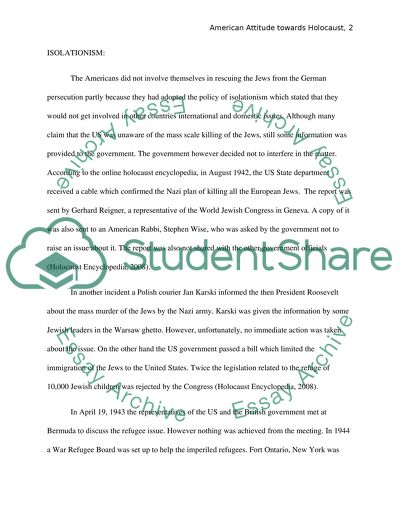Cite this document
(The American Lack of Involvement in the Holocaust Coursework, n.d.)
The American Lack of Involvement in the Holocaust Coursework. Retrieved from https://studentshare.org/history/1548767-americas-involvement-or-lack-of-during-the-holocaust
The American Lack of Involvement in the Holocaust Coursework. Retrieved from https://studentshare.org/history/1548767-americas-involvement-or-lack-of-during-the-holocaust
(The American Lack of Involvement in the Holocaust Coursework)
The American Lack of Involvement in the Holocaust Coursework. https://studentshare.org/history/1548767-americas-involvement-or-lack-of-during-the-holocaust.
The American Lack of Involvement in the Holocaust Coursework. https://studentshare.org/history/1548767-americas-involvement-or-lack-of-during-the-holocaust.
“The American Lack of Involvement in the Holocaust Coursework”, n.d. https://studentshare.org/history/1548767-americas-involvement-or-lack-of-during-the-holocaust.


